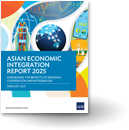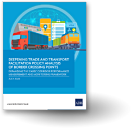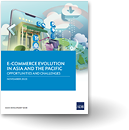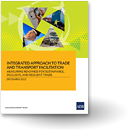Money and Finance
ASEAN Surveillance Process (ASP)
The ASEAN Surveillance Process (ASP) was established as a regional surveillance mechanism to complement the surveillance mechanism of the IMF and the national surveillance process of each member state. A Terms of Understanding for establishing the ASP was signed in February 1998, finalized in August 1998 and endorsed in December 1998. In 1999, it began to function as a mechanism for peer review and exchange of views among the senior officials (central bank and finance) and Finance Ministers on recent economic developments and policy issues in ASEAN. Since then, it has evolved into an important mechanism in ASEAN on regional economic monitoring and surveillance. The ASP reviews global, regional, and individual country developments, and monitors exchange rate and macroeconomic aggregates as well as sectoral and social policies. It facilitates consideration of policy options, encouraging member countries to develop prompt individual or collective responses to prevent crises. The ASP also provides a mechanism for sharing information and for developing early warning systems. To carry out these objectives, ASEAN Finance Ministers meet annually with ministries of finance and central bank deputies meeting semiannually. Key achievements to date include:
- establishment of a dedicated unit at the ASEAN Secretariat (ASEC) to conduct regional surveillance and facilitate regional cooperation activities in finance;
- establishment of national surveillance units in selected countries (Indonesia, Cambodia, Lao PDR, Philippines, Thailand and Viet Nam) to assist in building capabilities in surveillance related work;
- capacity building training programmes for ASEAN finance and central bank officials on regional economic monitoring and surveillance, conducted by the Asian Development Bank (ADB); and
- conduct of technical studies and policy papers on finance and economic issues (e.g., fiscal sustainability, banking and corporate restructuring, and monitoring of capital flows).
Agreements
- Terms of Understanding on the Establishment of the ASEAN Surveillance ProcessAssociation of Southeast Asian Nations (ASEAN) Secretariat4 Oct 1998
News
- Singapore regulator tells banks to monitor Myanmar fund flows after coupReuters4 Mar 2021
- Bank Indonesia and Monetary Authority of Singapore extend bilateral financial arrangementMonetary Authority of Singapore5 Nov 2019
- Indonesia, Thailand central bank strengthen cooperation in payment systemsInside Indonesia4 Apr 2019
- ASEAN's first digital bank to launch in ThailandDigital News Asia15 Feb 2019
Opinions and Editorials
- Good fortunes in ASEAN’s financial servicesThe ASEAN Post19 Jan 2019
- Evolution of Asian financial cooperation 20 years after crisisAsia Times31 May 2017
- Resilience and Vigilance: AMRO’s Perspectives on Regional Financial CooperationAMRO4 May 2017
- ASEAN integration offers growth opportunities to insurers, says ViriyahWorld Finance7 Nov 2016
Studies and Research
- ASEAN Financial Integration: Opportunities, Risks, and ChallengesA. RilloMinistry of Finance - Japan1 Sep 2018
- AMRO’s 2016 Consultation Report on the PhilippinesAMROAMRO12 May 2017
- ASEAN+3 Regional Economic Outlook 2017AMROAMRO4 May 2017
- ERIA FRAMES (March - April 2015 Issue)ERIAEconomic Research Institute for ASEAN and East Asia1 Jun 2015
Meetings
- 18th ASEAN Finance Ministers' and Central Bank Governors MeetingAssociation of Southeast Asian Nations (ASEAN) Secretariat
- 10th ASEAN Central Bank Governors' Meeting (ACGM)Association of Southeast Asian Nations (ASEAN) Secretariat4 Apr 2014
- ASEAN Finance and Central Bank Deputies Meeting (AFDM) and 22nd ASEAN Conference of Deputy Governors of Central Bank Meeting (ACDM)Association of Southeast Asian Nations (ASEAN) Secretariat1 Apr 2014
- ASEAN Finance and Central Bank Working Group MeetingAssociation of Southeast Asian Nations (ASEAN) Secretariat24 Feb 2014




